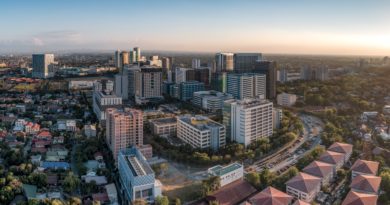Marcos Receives PSAC-Agriculture Achievements, Approves New Recommendations
The Private Sector Advisory Council (PSAC) Agriculture Sector, through its lead and La Filipina Uy Gongco Group of Companies President and CEO Aileen Christel Ongkauko and PSAC lead convener and Aboitiz Group President and CEO Sabin Aboitiz reported to President Ferdinand ‘Bongbong’ Marcos, Jr (PBBM) on the completion of several work plans that will enhance the efficiency and competitiveness of the Philippine agriculture industry.
One significant achievement aligned with the council’s goal to expedite government transactions, PSAC successfully advocated for the removal of the Authority to Release Imported Goods (ATRIG) requirement for Agricultural Non-VAT Products. Responding to this advocacy, the Bureau of Internal Revenue (BIR) issued Revenue Memorandum Circular No. 31-2023 on March 16, 2023, thereby relieving importers from the burden of securing ATRIG from the BIR. The responsibility of validating imported goods and submitting importers’ lists for tax audit purposes now lies with certifying government agencies. Moreover, the BIR extended this non-issuance of ATRIG to importers of goods covered by VAT exemption through Revenue Memorandum Circular No. 68-2023 issued on June 13, 2023.
Another noteworthy accomplishment pertains to fish importation. Recognizing the need to meet the demand for fish during closed seasons, PSAC’s recommendation on the importation of fish in Luzon from November 2022 to January 2023 and in Mindanao from December 2022 to February 2023 was well executed. The council also emphasized the importance of strategic planning for sugar importation, and suggested that imported sugar stocks be physically present in the country between May and July 2023.
In addition to these accomplishments, PSAC presented a new set of recommendations aimed at driving further economic growth and development in the country by harnessing the potential of our agricultural produce.
Firstly, PSAC recommended the establishment of nationwide mother-daughter stations for rice and corn storage as part of the Food Security Infrastructure Modernization Plan. According to PBBM, such stations, also known as hub-and-spoke stations, are working efficiently in Thailand and India and worth emulating in the Philippines. These stations would help maintain a 30-day buffer stock, ensuring food security. PSAC proposed the creation of a technical working group (TWG), with PSAC’s active participation, to develop and implement this plan. To encourage private sector participation, the council suggested exploring public-private partnerships (PPP) for each module, with the government guaranteeing an offtake of 100,000 metric tons per module per year. Additionally, the use of hybrid seeds for rice and corn during the wet season is advised, along with selecting key farmers within a 30-kilometer radius of each daughter station. The National Food Authority will lead the work plan.
Secondly, PSAC recommended granting long-term permits of 25 years, known as Fishpond Lease Agreements (FLAs), for aquaculture operations in dams and reservoirs. To promote equitable competition, it is strongly encouraged that all operators adhere strictly to environmental, labor, and other applicable regulations. The Department of Agriculture (DA), Bureau of Fisheries and Aquatic Resources (BFAR), Department of Environment and Natural Resources (DENR), and National Irrigation Administration will work together to implement the work plans.
Thirdly, PSAC proposed issuing clear policies regarding delineation areas for commercial fishing. PSAC will collaborate closely with BFAR on this to establish science-based fishing areas based on depth, not distance from shore. The council further suggested extending the terms of licenses to operate fish farming areas, promoting stability and long-term investment in the sector. PSAC will work also with DA and DENR to execute the plan.
PSAC reiterated its unwavering commitment to working closely with President Marcos and the government to implement these recommendations. By doing so, they aim to contribute significantly to the sustainable growth of the Philippine economy.




